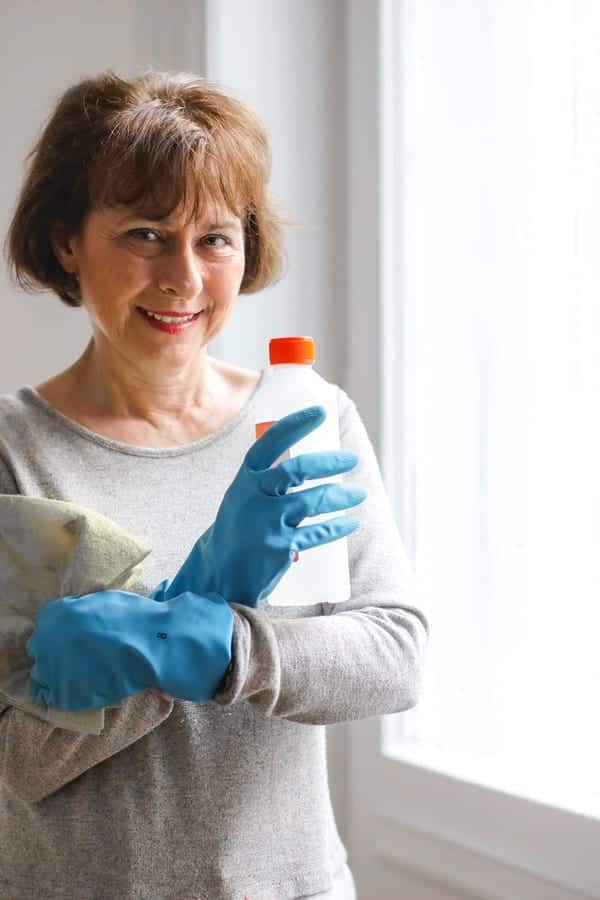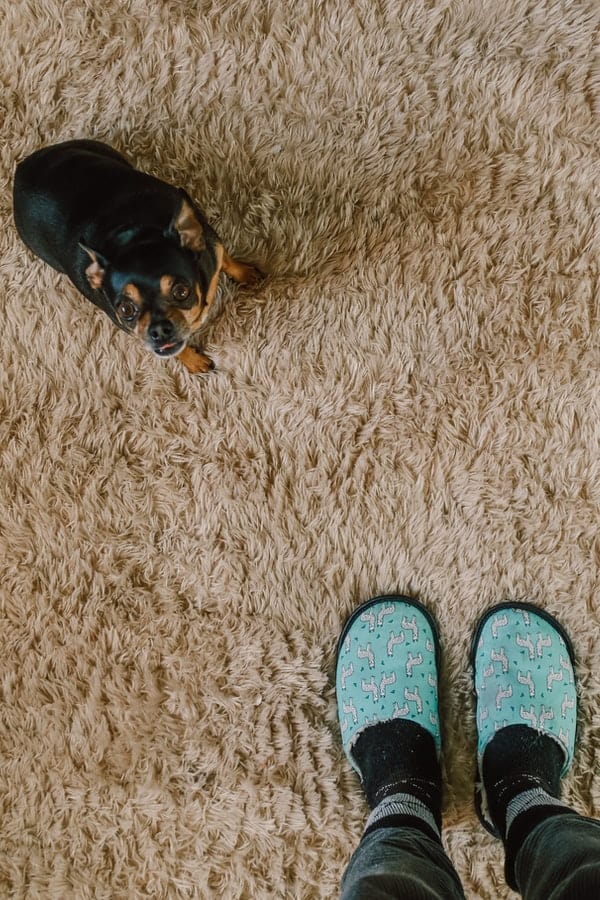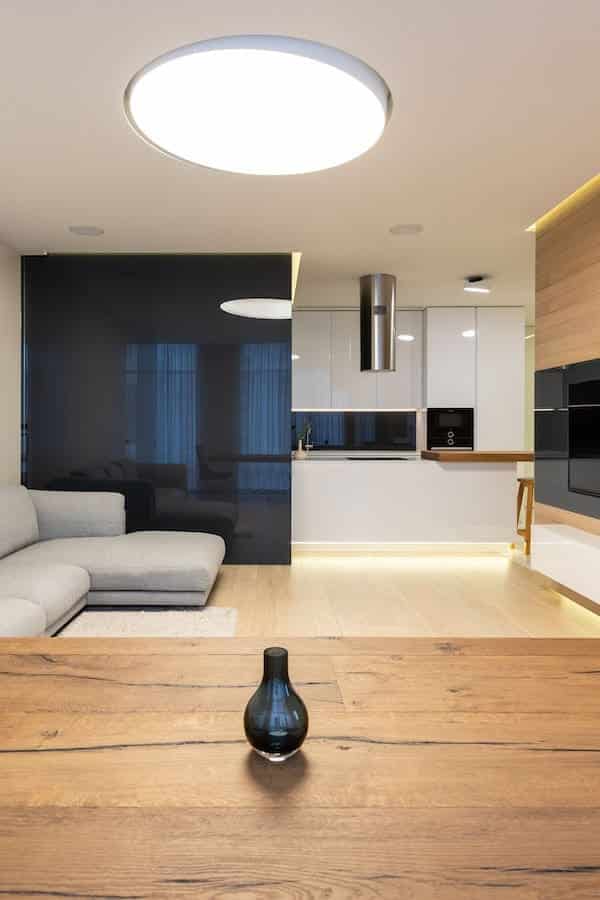You may have heard of the term ‘pH neutral’ and thought it was some mambo-jumbo marketing garbage used to sell you something. And you may have been right!
However, pH neutrality does actually mean something, and understanding pH is useful when learning about cleaning products. PH is a scale, and cleaning products will fall into three categories.
Acidic, alkaline, and neutral. Neutral sits between acidic and alkaline, which usually means that the product is gentle and doesn’t contain harsh chemicals.
Many pH-neutral cleaners are on the market, and some are more worth the investment than others. Materials such as hardwood or natural stone require more care and consideration.
Using pH-neutral cleaners designed for such materials can save you from unnecessarily damaging surfaces, giving you extra work. We have collated a few pH-neutral cleaners great for use around your home, as well as a DIY option for those money-conscious readers.
There may be affiliate links in this article. You can read more about this in my disclosure.
What is a pH Neutral Cleaner?

The pH scale goes from 0 to 14, with 0 to 6.9 being more acidic and 7.1 to 14 being more alkaline. The sweet spot in the middle, pH 7, is neutral.
That means for a cleaner to be defined as ‘neutral,’ it needs to be tested using pH measuring paper, and it should fall between pH of 6.5 to 7.5. Neutral cleaners will be non-hazardous and will not contain any harsh chemicals such as phosphates or hydroxides.
Acid-based cleaners range between pH 1 and 6. They are useful at dealing with non-organic messes and can are great for removing mineral deposits or oxidation on surfaces.
Alkaline cleaners range between pH 7.1 and 14. They are great at tackling organic residues, such as oils and grease.
Heavy-duty degreasers usually have a pH between pH 13 and 14, whereas standard household cleaners will range between pH 9 and 11. Both acidic and alkaline cleaners have their place in household cleaning, but often will be too harsh for the simple cleaning job at hand.
Why and When Should I use a Neutral pH Cleaner?

The neutral cleaner trend has gained traction recently as many of us have become increasingly concerned with the environment. PH-neutral cleaners are less environmentally harmful and tend to be made of more natural ingredients.
Furthermore, pH-neutral cleaners are more gentle and thus can be used on more delicate surfaces. On the other hand, highly acidic or alkaline cleaning products often contain harsh chemicals that can damage materials, such as natural stone.
Not only do these harsh chemicals damage materials, but they can also damage your skin. Frequently using products such as bleach, mean they will come into contact with your skin, cause reactions, and can even be toxic in the bloodstream at high doses.
The person who is cleaning can come into direct contact with the harsh chemicals. However, residue of the chemicals can remain on the areas you have cleaned.
So, if you have a household with children on pets, their skin can also come into contact with the chemicals and cause reactions and damage.
When Should I Use a pH-neutral Cleaner?
pH-neutral cleaners can come in handy and be used on various surfaces. Many natural materials will respond better to pH-neutral cleaners.
Here are some surfaces that you can use a pH-neutral cleaner:
- Natural stone.
- Hardwood floors.
- Vinyl.
- Untreated wood.
- Grout.
- PVC.

Although many of these materials are compatible with pH-neutral cleaners, conventional harsh cleaners can still be used. However, acidic or alkaline cleaners may cause unnecessary damage, especially when you’re simply doing maintenance cleaning.
pH-neutral cleaners are great for preventing stain build-up and are great for maintaining your home. However, when intensive stain removal is required, other products may need to be used.
List of pH Neutral Dish Soaps.
Most people use dish soap daily and on various surfaces because most dish soaps have a pretty neutral pH. Look out for words like ‘gentle’ or ‘great for hands’ on soap bottles, as it usually indicates that the pH is neutral.
The mildness of pH-neutral dish soap makes it a great all-around cleaner for day-to-day use. Mild dish soap will clean most things to a good standard, and very few surfaces will be damaged by coming into contact with it.
Here’s a list of the top 3 pH-neutral dish soaps:
- Mrs. Meyer’s Clean Day Dishwashing Liquid
- Dawn Dish Soap Platinum
- ATTITUDE Liquid Dish Soap for Baby Products
- Ecover Liquid Dish Soap
List of the Best pH Neutral Bathroom Cleaners
One of the biggest reasons to use pH-neutral bathroom cleaners is due to lack of ventilation. Many bathrooms do not have windows and may have a small roof vent that does nothing.
Using harsh cleaners releases toxic fumes and can turn bathrooms into dangerous enclosed spaces that can make you dizzy. When used, pH-neutral cleaners are less likely to create toxic fumes and are much safer if you do not have proper ventilation.
Most bathrooms are made from tile, porcelain, stone, and granite, so many pH-neutral bathroom cleaners are specially formulated for these surfaces. Here are a few:
- Stone Care International Granite Cleaner
- Oceancare Products pH Neutral Tile & Stone Cleaner
- Weiman Granite Stone Clean, Polish, and Protect
List of Top pH Neutral Floor Cleaners
Before picking a floor cleaner, neutral or otherwise, you need to make sure the cleaner is compatible with your floor type. For example, stone floors will need a different cleaning product from wood.
Neutral floor cleaners are great for daily or weekly cleaning and contain chemicals to deal with common floor bacteria without being acidic or alkaline. In addition, neutral floor cleaners can sterilize the home without eroding natural stones or damaging the varnish on your floor.
- Faber Professional floor cleaner – great for porcelain or ceramic tiles.
- Bona Wood Floor Cleaner Liquid – best for hardwood floors.
- Fila Surface Case Solutions, cleaner pro – great all-rounder, it can be used on tiles, ceramic, marble, and vinyl.
Best pH Neutral Kitchen Cleaners.
The pH-neutral cleaners listed above are safe for use on kitchen floors. Many synthetic surfaces can simply be cleaned with little soap.
Keep reading to learn how to make your own pH-neutral cleaner.
DIY pH Neutral Cleaner
If you don’t fancy splashing the cash on yet another cleaner to sit under your sink, you can make your own using a straightforward ingredient; dish soap. Dish soap is a cheap, multi-purpose, pH-neutral cleaning product that can be used in any room in your house.
Simply follow these steps to make the solution:
- First, measure out ¼ cup of a pH-neutral dish soap of your choosing.
- Add this soap into a large, clean bucket.
- Add 1 gallon of warm water and mix.
- Let the suds settle if you want to store the cleaner for later use. Then, grab a funnel and a clean spray bottle.
- Place the funnel in the spray bottle- maybe ask someone in your household for some help to hold the bottle to stabilize it. Then, pour the mixture into the bottle.
- Screw the top onto the bottle.
- Add a label on the cleaner, so you know what it is!
To Summarize
Investing in some good, pH-neutral cleaners for your home is a good idea. This is especially true when caring for natural materials such as stone and wood, which damage more quickly than they can be fixed.
Make sure you identify what materials you’re working with, as cleaners aren’t a ‘one-size-fits-all- situation on natural materials. Purchasing a pH-neutral, mild dish soap is a great way to avoid buying cleaners for every single surface, as it can be used in most rooms in the house.



